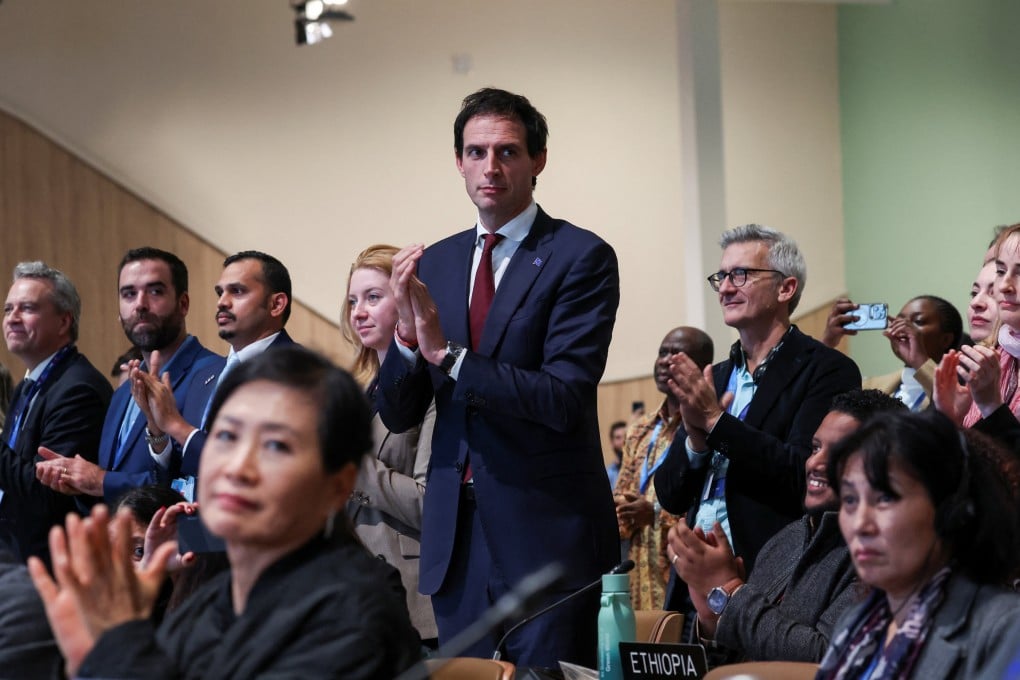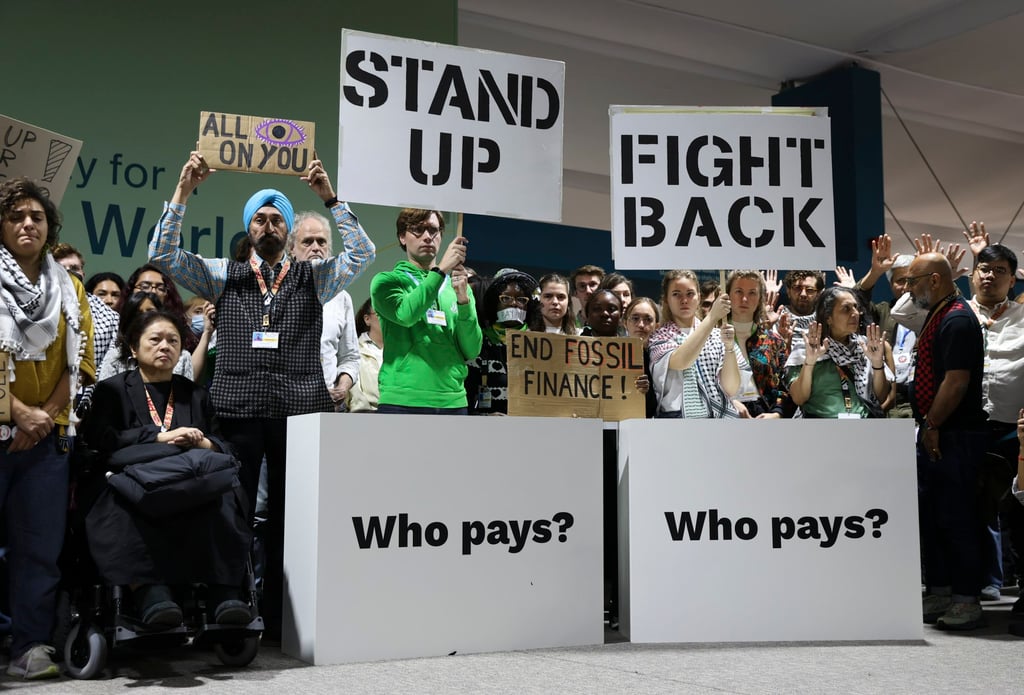Cop29 ends with US$300 billion deal on climate finance, saving talks from brink of collapse
But the agreed funding still falls far short of the trillions poor and vulnerable nations say they need to climate-proof their economies

Nearly 200 countries agreed to more than triple the amount of money available to help developing countries confront rapidly warming temperatures.
But the deal reached at the close of the two-week Cop29 summit in Azerbaijan resulted from fractious and at times openly hostile negotiations, producing an agreement that even its supporters may see as insufficient and disappointing.
The process of global climate cooperation will lurch forward from here under the weight of heavier existential questions.
Rich countries have pledged to provide at least US$300 billion annually by 2035, through a wide variety of sources, including public finance as well as bilateral and multilateral deals.
The agreement also calls on parties to work toward unleashing a total of US$1.3 trillion a year, with most of it expected to come through private financing.

Developed and developing countries entered the negotiations far apart on what was necessary yet realistic. At one point on Saturday, the talks even appeared to be on the brink of collapse, before the mood lifted late in the evening following numerous closed-door meetings.
